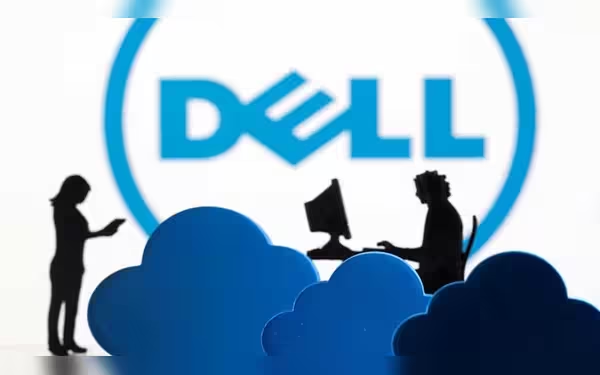Wednesday, December 4, 2024 08:01 AM
HP and Dell Forecasts Trigger PC Market Concerns
- HP and Dell face significant stock declines.
- AI adoption fails to boost PC demand.
- Slow Windows 11 rollout impacts upgrade cycle.
 Image Credits: thefrontierpost
Image Credits: thefrontierpostHP and Dell's weak forecasts raise doubts about the PC market recovery amid slow AI adoption and Windows 11 rollout.
In recent days, the personal computer (PC) market has faced significant turbulence, primarily due to disappointing forecasts from two major players: HP and Dell. These forecasts have raised serious concerns about the recovery of the PC market, which many had hoped would be revitalized by the introduction of artificial intelligence (AI)-enabled PCs. However, the reality appears to be quite different, as both companies have reported figures that suggest a more challenging landscape ahead.
On Wednesday, Dell's shares plummeted by 13% in pre-market trading, leading to a staggering loss of nearly $13 billion from its market value, which stood at $99.50 billion. This decline was triggered by Dell's announcement of quarterly revenue projections that fell short of market expectations. Similarly, HP experienced a 9% drop in its stock price, resulting in a market capitalization decrease of over $3 billion, down from $37.68 billion. These developments have left investors questioning the strength of the PC market, especially after a post-pandemic surge in demand.
Despite the buzz surrounding AI-powered computers, mass adoption has yet to materialize. Morningstar analyst Eric Compton pointed out, “We have long warned that we did not expect artificial intelligence personal computers to lead to any structural change in demand for PCs, and we think this is perhaps what the market was disappointed with.” This sentiment reflects a broader skepticism about whether AI will truly drive the demand for new PCs.
Moreover, the anticipated computer upgrade cycle, which was expected to be fueled by Microsoft’s end of support for Windows 10 and the transition to Windows 11, has not unfolded as quickly as many had hoped. HP's CEO, Enrique Lores, noted, “Since the Windows 11 refresh has ramped slower than previous industry transitions, we expect to see the impact of the upgrade to be more pronounced in 2025.” This slower-than-expected adoption of the latest operating system has further compounded the challenges facing these companies.
On a brighter note, Dell's AI server business has shown remarkable growth, with revenue in the servers and networking unit soaring by 58%. This surge is largely attributed to the increasing demand for Dell's servers from cloud companies eager to leverage AI technologies. In fact, Dell's shares have climbed an impressive 85% this year, significantly outperforming HP Inc and HP Enterprise, which have seen a 30% rise.
However, analysts caution that the slow rollout of Nvidia’s next-generation AI chip could pose a risk to Dell’s sales moving forward. Currently, HP shares are trading at 10.84 times analysts’ profit estimates, while Dell stands at 15.51, and Microsoft at 30.94. These figures highlight the varying levels of investor confidence in these companies.
The recent forecasts from HP and Dell serve as a stark reminder of the challenges facing the PC market. While there are pockets of growth, particularly in the AI server sector, the overall outlook remains uncertain. As technology continues to evolve, it will be crucial for these companies to adapt and innovate to meet changing consumer demands. The future of the PC market may hinge on their ability to navigate these turbulent waters and capitalize on emerging trends.













